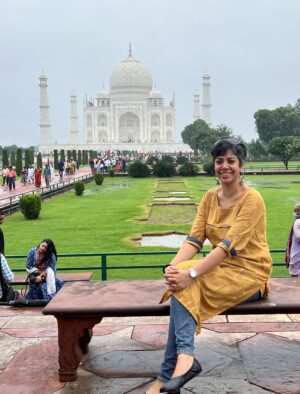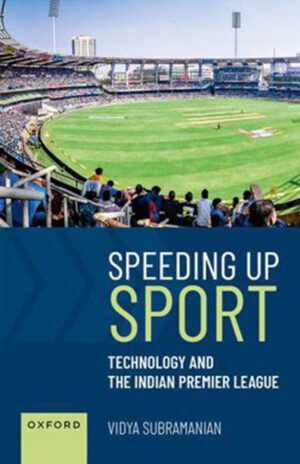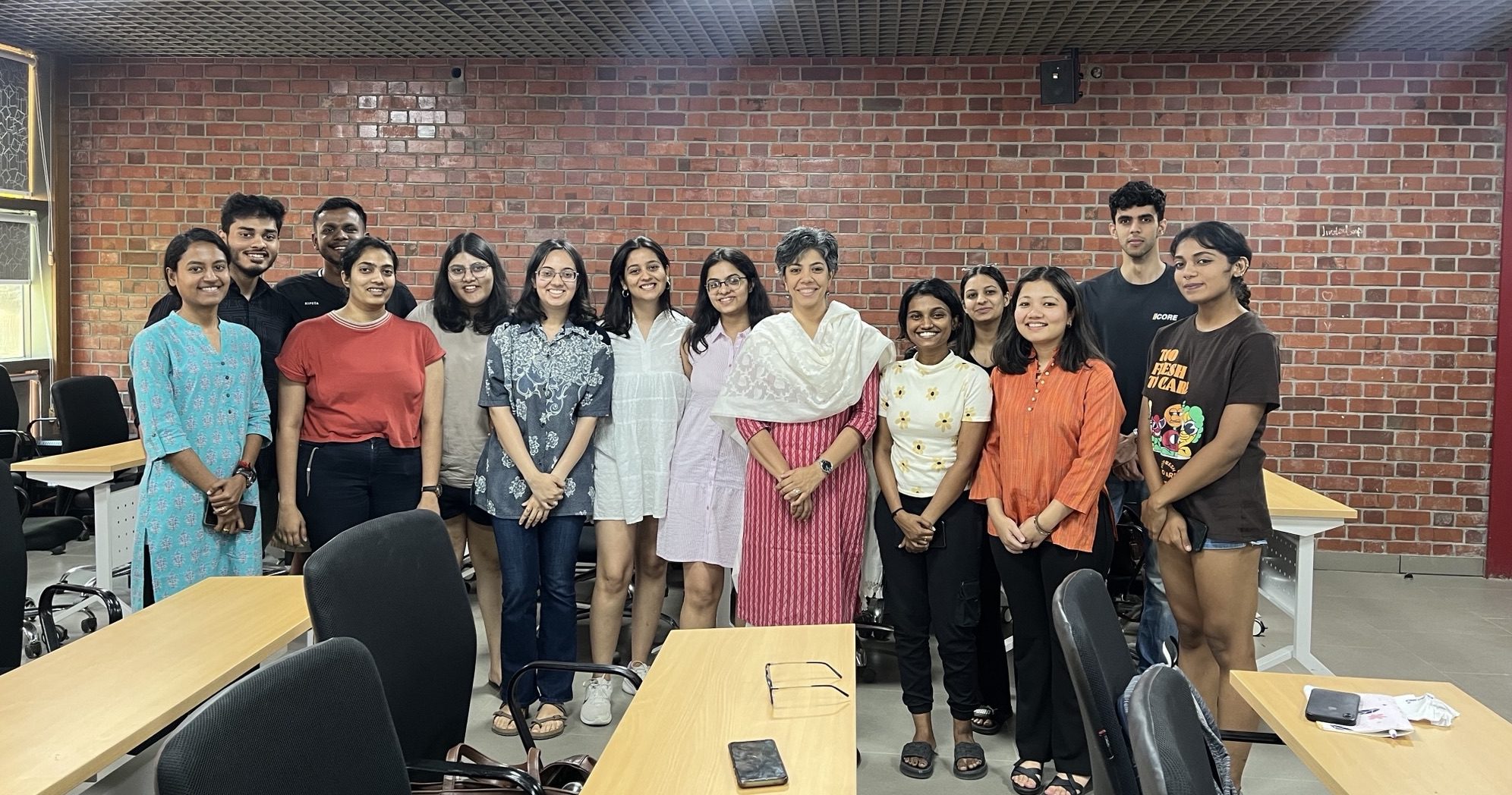
Vidya Subramanian, former Raghunathan Fellow.
Vidya Subramanian, former Raghunathan Fellow at the Mittal Institute and STS Fellow at Harvard Kennedy School, has been busy in the years since her stint at Harvard (read our previous interview with her here). We caught up with Vidya to learn more about her work at the intersection of technology and society, and her research into the changing nature of citizenship in our technological society.
Mittal Institute: Vidya, what is your current position now, and how has your research focus evolved or changed since your time at the Mittal Institute?
Vidya Subramanian: I’ve been an Associate Professor at Jindal Global Law School since I came back to India in 2022. I teach elective courses on STS (Science, Technology, and Society) and foundational Social Science Courses. My research on the interactions of technology and society draws a lot from my time at Harvard as a Fellow at the Mittal Institute and as an STS Fellow. My work has evolved since I was in Cambridge in many ways. I think I have learned to look at my work from a more global perspective and through several different frames. I’m still thinking of how tech-society relations play out in India; but I’m also considering several different kinds of larger pictures — as South Asian, as cross-continental global south (or non-west), and, of course, as worldwide issues.
I still work with many of the people I met at Harvard; in fact, some of those friendships and collaborations have recently come together in a Special Issue I did with another STS Fellow, Dr. Yousif Hassan, who teaches at the University of Michigan. Our Special Issue on ‘STS From the Peripheries,’ which deals with many such issues of digital technologies in the global south, is out now, and you can read my article, Citizenship in India: Parsing the Complexity of Digital Identity Systems.
Mittal Institute: You authored a new book, Speeding Up Sport: Technology and the Indian Premier League. Can you share more about this book and why you decided to write it?

Vidya’s new book, Speeding Up Sport: Technology and the Indian Premier League
Vidya Subramanian: Yes! The book is finally out! I worked on the final proofs of the book while at the Mittal Institute. The book is adapted from my doctoral work at JNU (Jawaharlal Nehru University, New Delhi). It is a first-of-its-kind exploration of the influence of technology on the sport of cricket and on the IPL (Indian Premier League) in particular. It explores the many ways in which technologies interact with the sport of cricket and how these technologies reshape cricket into the ‘sporting entertainment complex’ that it has become today. I argue that it has been built as a sporting platform to sustain many different things, including advertising campaigns, business interests, celebrity culture, entertainment values, technological systems, and also cricket.
Mittal Institute: What’s next on the horizon for you?
Vidya Subramanian: The most exciting thing I’m doing is a project on trying to understand the use of the contact tracing app Aarogya Setu in India during the pandemic. I am working with some colleagues in India to trace how the app was used, what happened with it, and what it says about India’s relationship with technology and governance.
I am also part of a group of scholars setting up the ‘STS India Network.’ We are trying to bring together scholars, educators, and practitioners from around the world to explore the intersections of science, technology, and society in India.

Vidya, center, with one of her classes at Jindal Global Law School.
Mittal Institute: How did your time at the Mittal Institute influence your professional work?
Vidya Subramanian: Other than with all the good food, you mean? I’m joking, of course. The food was very important in allowing me to do good work. 😉
I think the thing I most cherish about my time at the Mittal Institute is the camaraderie and willingness to help that everyone there embodied. Access to academic and other resources, contacts of people at Harvard and beyond, being able to engage with so many scholars, journalists, artists, and practitioners from South Asia (and beyond!) in one place was incredibly meaningful. I think I’m still discovering and realizing how much that experience meant to me.
The thing I most cherish about my time at the Mittal Institute is the camaraderie and willingness to help that everyone there embodied … I think I’m still discovering and realizing how much that experience meant to me.
The Mittal Institute gave me much more than a space to sit and work in. It allowed me to find newer avenues of thought, find people who could engage with different aspects of my work, and tease out the complicated and messy threads of studying contemporary Indian society. It gave me an opportunity to zoom out a little, so to speak. I think I saw my work from a larger, more global perspective from the halls and windows of the Mittal Institute.
☆ The views represented herein are those of the interview subject and do not necessarily reflect the views of the Mittal Institute, its staff, or its steering committee.
